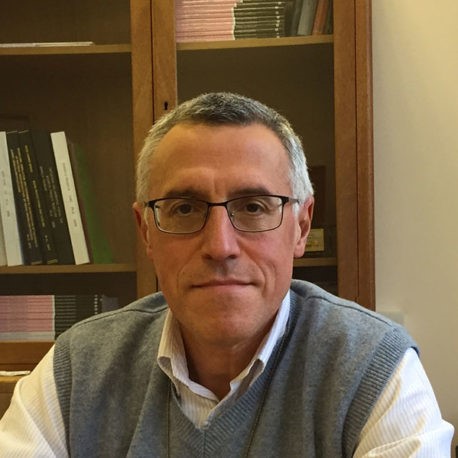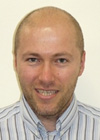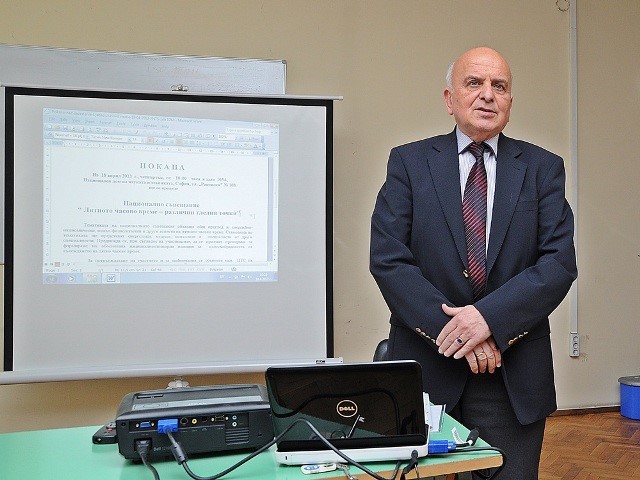 PROF. STEFAN DIMOV, DIPL. ENG., PhD, DSc, FIMechE
PROF. STEFAN DIMOV, DIPL. ENG., PhD, DSc, FIMechE
DEPARTMENT OF MECHANICAL ENGINEERING, SCHOOL OF ENGINEERING,
ENGINEERING AND PHYSICAL SCIENCE COLLEGE
UNIVERSITY OF BIRMINGHAM
Stefan Dimov is a Professor of Micro Manufacturing and Head of Advanced Manufacturing Technology Centre at Department of Mechanical Engineering, the University of Birmingham. He obtained his Diploma Engineer and Doctoral degrees from Moscow State University of Technology and Doctor of Science degree from Cardiff University. His research interests encompass the broad area of advanced manufacturing with a special focus on Micro and Nano Manufacturing, Additive Manufacturing and Hybrid Manufacturing technologies. He established the Micro Manufacturing and Hybrid Manufacturing labs in Birmingham, which are now widely recognised for their internationally leading research. His academic output includes more than 250 technical papers and 13 books. He has supervised over 25 PhD theses to completion. He has won in excess of £30M in external research grants and contracts. He is Associate Editor of the ASME Journal of Micro- and Nano-Manufacturing and Precision Engineering Journals. In addition to pursuing and leading research, he has also been very active with knowledge transfer to industry, applying the results of his work to help multinational companies and SMEs to create wealth and safeguard jobs. He has established the Multi-Material Micro Manufacture (4M) Community in 2004 through the FP6 4M NoE programme and currently he is Executive Officer of the self-sustained 4M Association (www.4m-association.org ). He is the recipient of Thomas Stephens Group Prize in 2000 and 2003 and Joseph Whitworth Prize in 2017 awarded by the Institution of Mechanical Engineers (IMechE).
HYBRID MANUFACTURING: ENABLING TECHNOLOGIES AND APPLICATIONS
Abstract:
Additive Manufacturing (AM) of metal parts made a significant progress in the last two decades. Especially, there have been significant advances in single-step Powder Bed Fusion (PBF) technology and currently laser-based PBF can be considered the most widely adopted process for metal AM. Multi-step Binder Jetting follow by Sintering (BJ+S) technology has advanced too and now it is commercially offered for one-off and batch manufacture of metal parts. In general, the metal AM technologies has matured to reach a level where they can be considered as viable alternatives for producing near net shape parts that can meet the requirements of niche markets, mostly for small batch manufacture. However, to increase productivity, quality and cost-effectiveness of such single and multi-step metal AM technologies, it is necessary to integrate them in production lines with complementary and at the same time mature and widely used by industry technologies, e.g. the whole range of machining, heat treatment and surface engineering processes. To achieve this it is necessary to create system-level tools for interfacing metal AM processes with pre-processing and post-processing machining technologies into production lines and thus to meet specific application requirements. The talk will provide an overview of recently developed enabling technologies for hybrid manufacturing in EC and nationally funded research programmes. The talk will discuss generic integration issues in improving the system-level performance of metal AM technologies. In particular, the talk will discuss the design and implementation of modular work holding systems, automated workpiece setting up routines and inline inspection/monitoring solutions for interfacing BJ+S and laser-based PBF technologies with pre- and post-processing processes. Pilot implementations will be used to demonstrate the flexibility and operability of the proposed tools to address important system-level issues in integrating metal AM technologies in production line. Case studies will be used to illustrate the capabilities of these tools when employed for producing complex parts.
 TODOR DOBREV, PhD
TODOR DOBREV, PhD
SENIOR LECTURER, COLLEGE OF ENGINEERING AND TECHNOLOGY,
UNIVERSITY OF DERBY, UK
Programme Leader for BEng (Hons) Mechanical and Manufacturing Engineering at the University of Derby.
Dr. Todor Dobrev has over 14 years’ R&D experience in computer aided design, design for X, robotics, micro manufacturing and tooling. His PhD and post-doctoral work focussed on the fields of laser ablation, hot embossing, micro tooling design and FEA simulation.
Dr. Dobrev is author/co-author of several publications in the area of laser material processing, advanced manufacturing technology, robotics and process chains. Dr Dobrev has MEng in Integrated Engineering, Nottingham Trent University and PhD in Laser milling for micro manufacturing applications.
His research field includes: Laser Micro- and Nano-manufacturing; Ultra-fast lasers; CAD/CAM; Advanced Design for X and Design for Sustainability.
INDUSTRY 4.0 - HIGHER EDUCATION PERSPECTIVE
Abstract:
Industry 4.0 is a broad enough category to interpret modern achievements and change in the way of thinking – a strategy for smart, sustainable and inclusive a growth.
The Plenary Report focuses on the requirements of the modern technological revolution and what it means to educate and acquire competencies and skills in the areas of knowledge such as: laser material processing, advanced manufacturing technology, robotics and process chains.
The author will present a new training system that started as a pilot program at the Derby University, United Kingdom.
 ASSOC. PROF. RADOSLAV KYUCHUKOV, PhD
ASSOC. PROF. RADOSLAV KYUCHUKOV, PhD
ЕNERGETICS OF LIGHTING IN TIME SYSTEMS
Abstract:
The organization of the light part of the day is applied for rational use of electrical energy for lighting. Historically, Daylight Saving Time is introduced as a measure to save electricity for lighting.Later on, he has grown inertia and motivated himself as a measure to improve the quality of life.
At the University of Ruse, systematic studies have been carried out on the usability of artificial lighting. A methodology has been developed for assessing the usability of arti-ficial lighting in two systems of time – zone time and summer time. A national database containing the energy-economic indicators of artificial lighting in 27 geographic points in Bulgaria was established.
From this objective information base are presented representative data. The expected better use of daylight at daylight saving time is not confirmed. Under certain work-time plans, in some parts of the country, energy costs even increase. The increase is both in absolute terms and through the change in the usability of lighting throughout the tariff zones (eg redistribution from night to day energy).
Daylight saving time mainly relates to productions and activities that start and end in the daylight. The usability of artificial lighting depends mainly on:
- dimensions, execution and positioning of luminaries (windows and the like);
- the light climate and the geographical location of the area concerned;
- working and rest regime;
- social status;
- ther factors.
Invited speakers from previous years:
2019 г. |
2018 г. |
2017 г. |
2016




